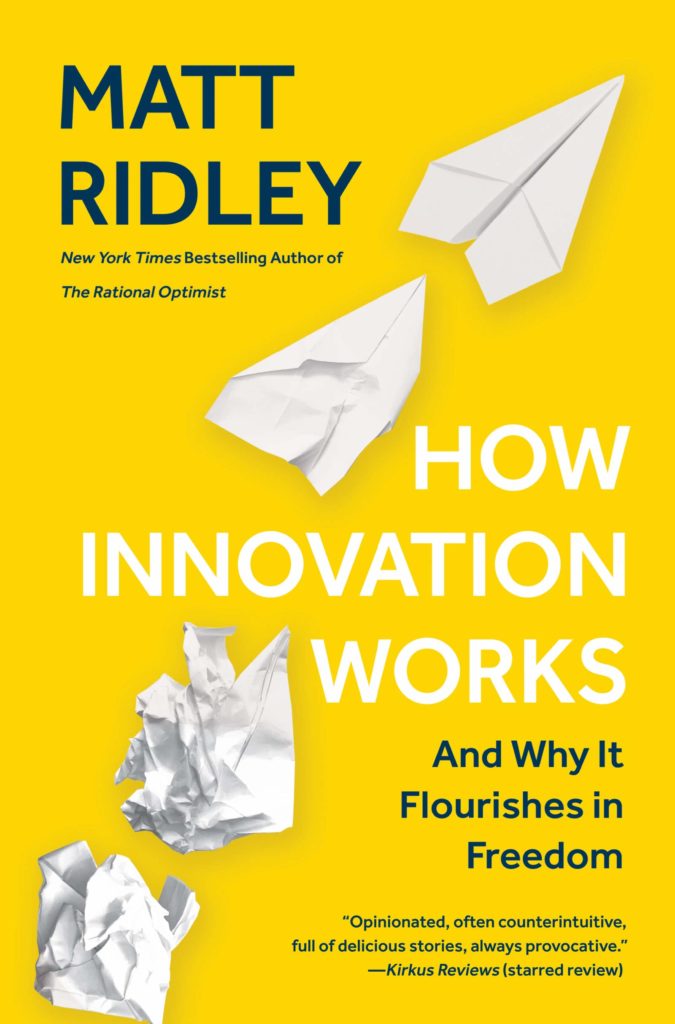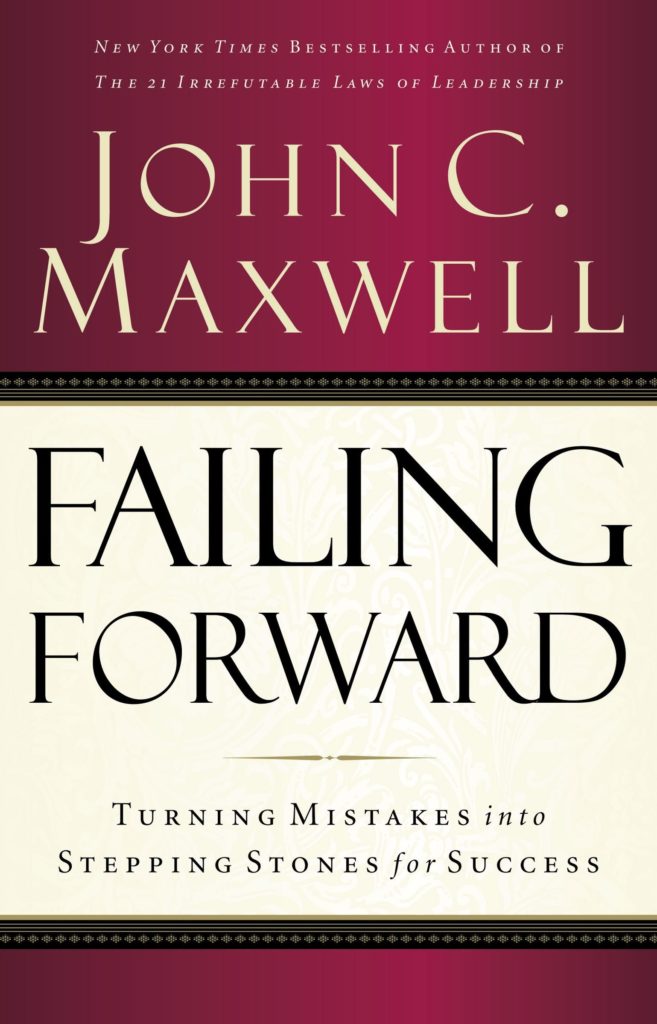The vast majority of the books I read, I don’t finish. Occasionally, a book is so good I reread it. Once in a while, a book is so good I start into it as soon as I have finished it. Matt Ridley’s How Innovation Works was just that good. Here are a few key highlights as they related to Small Group Ministry.
Innovation is the key to nearly everything
How Innovation Works is a sequel of sorts to Ridley’s earlier work, The Rational Optimist. In the book Ridley argued that the world is getting better and better by every conceivable measure. We live longer. We live better. We are better educated. We have better entertainment. We have better medicine. We have access to travel. We have access to unbelievable technology. Here are three quotes:

- But the vast majority of people are much better fed, much better sheltered, much better entertained, much better protected against disease and much more likely to live to old age than their ancestors have ever been.
- Even allowing for the hundreds of millions who still live in abject poverty, disease and want, this generation of human beings has access to more calories, watts, lumen-hours, square feet, gigabytes, megahertz, light-years, nanometres, bushels per acre, miles per gallon, food miles, air miles, and of course dollars than any that went before.
- Today, of Americans officially designated as ‘poor’, 99 per cent have electricity, running water, flush toilets, and a refrigerator; 95 per cent have a television, 88 per cent a telephone, 71 per cent a car and 70 per cent air conditioning. Cornelius Vanderbilt had none of these.[1]
What made all this possible? Innovation.
Of course, as Christians, we have to put an asterisk by the word, “everything.” We know that Jesus said, “Without me you can do nothing.” We have to be prayed up, Spirit-led and totally dependent on God—not our innovation—in order to see any spiritual progress.
There is a both-and principle in Scripture taught in Nehemiah 4:9 (NIV), “But we prayed to our God and posted a guard day and night to meet this threat.” This is what effective workers do: they pray like it all depended on God and post a guard like it all depended on themselves. And the part that is dependent on us is greatly enhanced by innovation—finding better and better ways of doing things.
Jesus taught us to be a shrewd as snakes and innocent as doves. Whatever else that means, I believe it means we are to innovate.
Innovation is nearly always incremental
We tend to imagine that there was a day before manned flight and there then came the Wright brothers. Everything changed. Suddenly. All at once. Poof! This is almost never the case.
Ridley uses the light bulb as an example of this. Far from illustrating the importance of the heroic inventor, it turns out to be the opposite story. It is the story of gradual, incremental and collective innovation.[2]
The computer is another great example. There simple was no day that suddenly a computer was invented. We can’t circle a date on the calendar and say that before this day there were no computers and after this day there were computers. There were a thousand starts and stops in labs and garages all around the world.
A great example of this is in a recent podcast by Steve Gladden. There is a tendency to look at a church like Saddleback and all their amazing systems and think that they dreamt all this stuff up from day one. In this podcast, Steve goes through version 1.0, 2.0… 6.0 versions of small group ministry. Innovation is nearly always incremental.
https://podcasts.apple.com/ie/podcast/5-areas-to-reimagine-coaching/id1036430855?i=1000556410872
Question: what is the next incremental improvement in your small group ministry?
Innovation is nearly always the result of collaboration
We have a picture of the innovator as a loan scientist working alone in a solitary lab. This is almost never the case. Innovation is nearly always the result of collaboration.
I wrote an article recently on the nation’s fastest growing church—2|42 Community Church in Brighten Michigan. What struck me as I researched this church is how little they invented. They mostly collaborated. By learning from everyone, they created their own unique blend of effective ministry.
This is the great opportunity of the Small Group Network. And you can help.
- If you discover an improvement on how to do small group ministry, share it.
- If you have an issue you are struggling with in small group ministry, ask it.
- If you see someone else post a great idea, encourage them with a comment.
- If someone asks a question that you have an insight on, share it.
We are better together.
The farm and the garden
I don’t remember the source of this illustration. I want to acknowledge it didn’t come from me.
Every church ought to have a farm and a garden. The farm is what you are doing now. It is what is paying the bills. It is what is working.
The garden is what you are experimenting with. It is your Research and Development department.
Let’s say you are a Sunday School church and you want to move to a home group model. One way would be to cancel Sunday School one week and start home groups the next. This is not likely to work. Instead, plant a garden. Start one home group. Then a few more and a few more.
Innovation nearly always involves LOTS of failure
Another favorite book I have listened to time and again is John Maxwell’s Failing Forward. He talks about how success is not the result of what we commonly think. It doesn’t come from family background, wealth, opportunity, high morals or the absence of hardship. What does predict success? “I know of only one factor that separates those who consistently shine from those who don’t: The difference between average people and achieving people is their perception of and response to failure. Nothing else has the same kind of impact on people’s ability to achieve and to accomplish whatever their minds and hearts desire.”[3]

I close with this quote from Rick Warren:
Mark Twain once said dryly, “I knew a man who grabbed a cat by the tail and learned forty percent more about cats than the man who didn’t.” We’ve been grabbing the cat by the tail since the beginning at Saddleback Church—and we have the cuts and scars to prove it.
The truth is, we’ve tried more things that didn’t work at Saddleback than did. We’ve never been afraid of failure; we just call everything an “experiment.” I could fill another book with stories of our failures and call it 1000 Ways to NOT Grow a Church![4]
What are you growing in your garden?
[1] Matt Ridley, 2010, The Rational Optimist.
[2] Ridley, 2020 How Innovation Works.
[3] Maxwell, John C. 2000. Failing Forward. Thomas Nelson Publishers.
[4] Warren, Rick. 2007. The Purpose Driven Church: Growth Without Compromising Your Message and Mission. Grand Rapids, MI: Zondervan.





